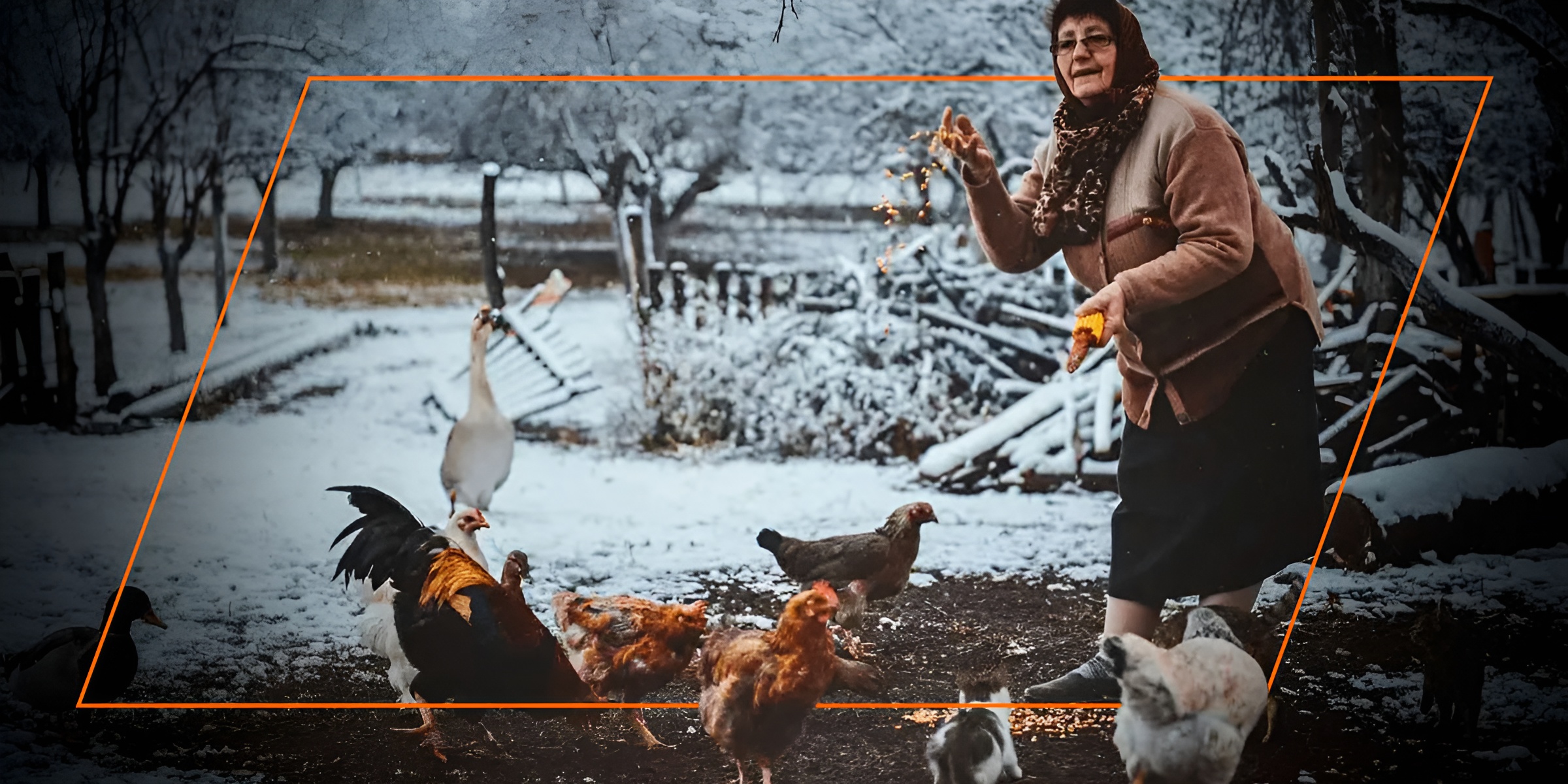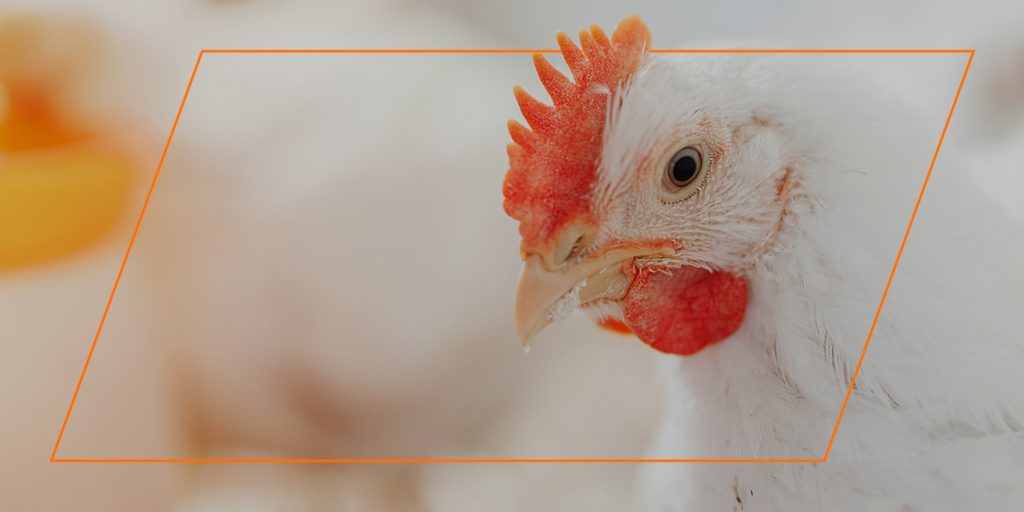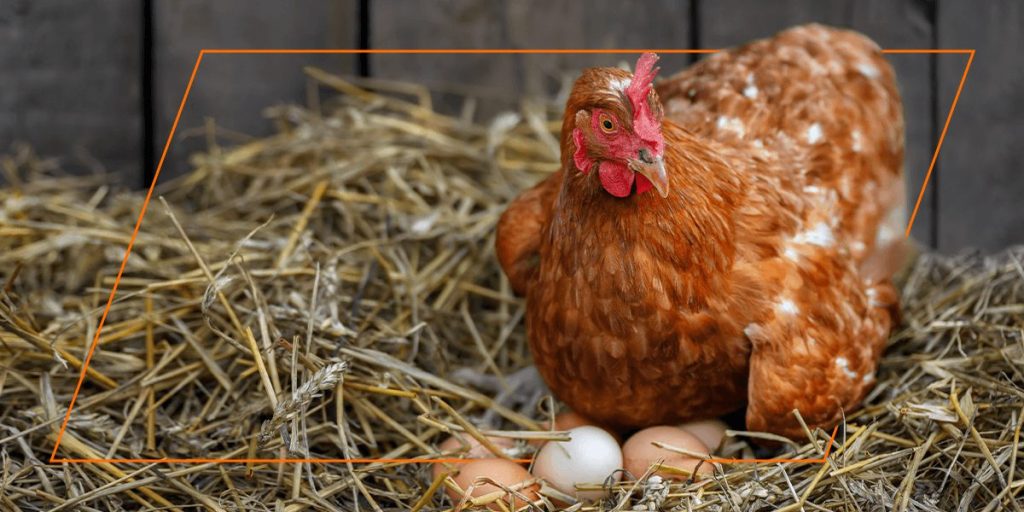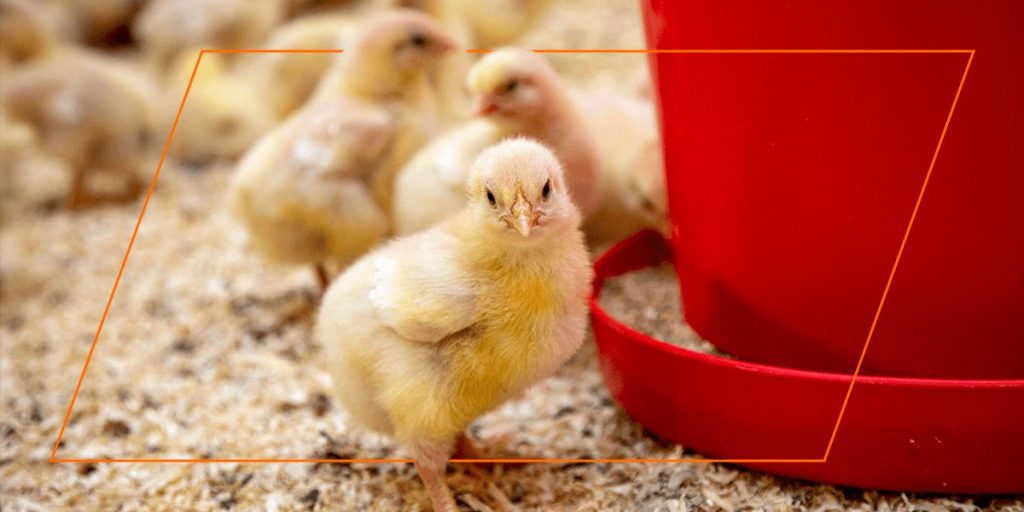When the temperature drops and the ground gets covered in snow, chickens can’t access their usual bugs, seeds, and greens. This lack of variety in their natural diet and the need to generate body heat means they require a little more care in the feed department. Incorporating winter feed for chickens helps them:
- Stay warm: Just like we crave a bowl of soup, chickens need food that’ll help them generate body heat from the inside.
- Get the nutrition they need: A balanced diet ensures chickens continue laying eggs even when the days are short and the weather is cold.
- Stay healthy: Proper nutrition boosts their immune system, ensuring they fend off winter illnesses.
What to Feed Chickens in Winter
As winter draws near, you may start craving more homemade treats like hot cocoa or hearty chili to warm up from the inside out. Chickens, on the other hand, have different tastes that may not sound as delicious to us, but their dietary needs do change in the winter. We change what we eat to accommodate our bodies’ demands during the winter chill, and our feathery friends also need meal adjustments to ensure they get all the required nutrients during the frosty months.
For many years, chickens have been resilient through winter. They adapt to changing seasons and their varying nutritional needs with ease. Historically, they thrived on a majorly foraged diet. That diet included seeds, insects, and greens they could scratch up from under the snow. These naturally sourced foods gave them the necessary nutrients, energy, and warmth.
Fast forward to today, we care for chickens much more than we did in the past and require new ways to care for chickens living on farms. Since you want to ensure the health of your flock during these cold days, you may be wondering what you can do to help them feel their best. As their friend, you can make it easier on them by updating their meals with the following products:
- Organic Poultry Scratch Grains: Best served in moderation to complete a wholesome, healthy feed.
- 16% Organic Egg Layer Pellets: Made to nourish birds mature enough to lay eggs around 22 weeks.
- 16% Organic Egg Layer Crumbles: Keeps birds feeding at a consistent rate with a hearty appetite.
- 20% Organic Chick Starter/Grower Crumbles: Feeds young and developing chicks to maintain growth.
Along with all the vitamins, minerals, and amino acids in these feeding solutions, these products offer plenty of protein. A protein-rich diet is one way to sustain your flock through fall and winter. Protein synthesis fuels cell and muscle growth and provides essential advantages for egg-laying hens, who also give humans a super powerful source of protein: eggs.
More Protein for Chickens in Winter
After a long summer of laying eggs, chickens use the winter as a time to rest and recuperate. Knowing what to feed chickens in winter to produce eggs is important. Egg production requires a lot of protein, as it is the building block of body tissues. Protein also helps feather regrowth, which is crucial during the molting season. So, your birds will need plenty of this vital resource in their feed to get through molting and maintain their strength. If you’re lucky, you may even get some good winter eggs — just be sure to collect them before they freeze.
Aside from protein, chickens generally need more of everything in the winter. Carbohydrates are essential for energy and generating warmth. The lack of forage available makes it even more important for you to use a healthy, nutritionally balanced food so that they don’t miss out on any vital nutrients.
You should plan to feed your chickens around 1.5 times what they eat in the warmer months so that they have plenty of energy to regulate their temperatures. Digestion creates heat, so sending your birds to bed with full stomachs will help them get through cold winter nights.
What Are Some Good Treats for Chickens in Winter?
We all love treats, and chickens are no exception! Winter is an excellent time to offer some extra goodies to your flock. These treats add variety to their diet and also provide necessary nutrients:
- Organic Chicken Treats with Ancient Grains and Sunflower Seeds: This mix is bound to be a hit with the flock, offering nutrition and taste.
- Organic Chicken Treats with Berries and Whole Grains: Berries provide antioxidants, while grains offer energy — a perfect winter combination.
- Organic Chicken Treats with Marigold, Alfalfa, and Oregano: This product is a favorite because of the marigold’s vibrant yolk color and antioxidants, the alfalfa as a protein source, and the oregano for its antibacterial benefits.
While chickens love treats, the extra stimulation is even more valuable on cold days when your birds might be bored. A few natural, healthy snacks will keep them entertained and provide benefits such as extra calories and a boost to the immune system. Leafy greens like kale and spinach are best, and a warm dish like split pea soup is a great winter chicken treat with its low sodium. To give your chickens extra fun, hang a head of cabbage or romaine lettuce on a line from the top of the coop. They’ll love the tasty treat, and the game of chicken tetherball will keep them entertained for hours.
Classic snacks like scratch grains or cracked corn are also great options for keeping your flock’s foraging skills sharp while providing some tasty extra carbohydrates. Given before roosting, these treats will help your birds generate digestive heat. Nature’s Best Organic Poultry Scratch Grains are available in 10lb. bags at Tractor Supply and are a nutritious treat for your layers and broilers! Lastly, you’ll want to ensure you offer your chickens some extra grit to aid digestion, as they may struggle to find enough when the ground is frozen.
Provide Balanced Treats, Carbs, and Protein for Chickens in Winter
Even in winter, treats should only be a small part of a chicken’s diet. To keep your birds healthy and happy throughout the winter season, you need to give them a nutritionally balanced feed that covers all of their essential needs. Provide them with the best chicken feed for winter, Nature’s Best Organic Feeds are all-natural, Non-GMO Project Verified, and backed by scientific research.
Our carefully balanced chicken feeds use optimal protein, carbs, and nutrients to give chicks, growers, and layers everything they need. With plenty of healthy feed to get them through the winter, your chickens will be plump, happy, and ready to fill those nesting boxes again in the spring. You and your feathered friends will always look forward to hearty meals in winter.
Keep Your Chickens Healthy With Winter Chicken Feed
Remember, it’s all about balance. While it’s essential to increase protein, carbs are also vital for energy. For instance, corn can be an excellent treat to keep chickens warm before bedtime, but don’t overdo it — balance is the key. Always ensure that your goodies are nutritious and contribute to their overall health.
Ready to keep your flock chirpy this winter? Dive into our range of winter treats and feeds and ensure your chickens get the best, as nature intended. After all, the healthier they are, the happier you’ll be! Find a store near you or contact us for more information.




